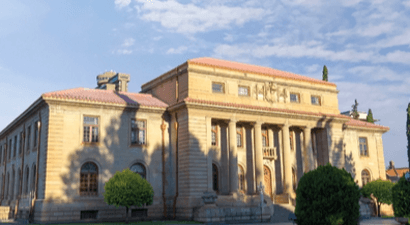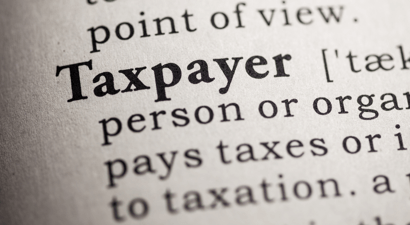2017 Budget Predictions
On 22 February, Finance Minister, Pravin Gordhan, will again have the unenviable task of presenting the 2017 budget, which, amongst other directives, will aim to alleviate the concerns of the international ratings agencies.
It is anticipated that Minister Gordhan will place priority on implementing policies aimed at encouraging economic growth in South Africa, especially in light of the fact that South Africa’s economy is expected to have grown by less than 1% in 2016. According to Minister Gordhan’s mid-term budget speech last year, sluggish economic growth has already given rise to a Fiscal shortfall of at least R28 billion. South Africans can therefore expect the Finance Minister to implement additional tax revenue mechanisms to alleviate treasury from this shortfall, as well as the implementation of tax incentives aimed at encouraging economic growth.
Additional revenue raising mechanisms
In light of the fact that the Finance Minister has increased excise duty in every budget speech he has ever presented to Parliament, one ought to anticipate this trend to be repeated in the 2017 budget speech.
Minister Gordhan may possibly repeat what was done in the 2016 budget speech by providing limited relief for fiscal drag, which occurs when inflation causes a taxpayer to enter a higher tax bracket. Such policy could give rise to R15 billion in added revenue collections and assist in alleviating the stress on the South African fiscus.
The Special Voluntary Disclosure Programme (“SVDP”), which was introduced last year, has also been highlighted as a possible source of additional revenue. Judge Dennis Davis had previously suggested that the SVDP could raise an added R10billion.
After the global economic downturn, the Organisation for Economic Co-operation and Development (“OECD”) drafted the Base Erosion and Profit Shifting (BEPS) report which identified a range of profit shifting risks faced by revenue services. Although South Africa is not part of the OECD, South Africa is a follower of the OECD and has made provisions to improve transparency by implementing country-by-country reporting requirements. It is therefore expected that treasury will improve its capacity to assess and scrutinize transfer prices and the transfer pricing policies of Multinational entities in aim to hamper profit shifting and transfer mispricing.
In the 2012 budget speech, Minister Gordhan suggested that a higher VAT rate would be proposed to fund the National Health Insurance scheme. In 2015 former Finance Minister Nene indicated that there is scope to increase the VAT rate. The Davis Report has also suggested South Africa increase the VAT rate in conjunction with increased welfare expenditure. The Davis Report provides that such a proposal could provide for increased revenue collections, as well as ensuring that the regressive nature of VAT does not leave poor households worse off financially. Jac Laubscher, a Sanlam economic advisor, has previously stated that half a percentage point increase in the VAT rate could provide additional tax of up to R11 billion. In light of all these factors, and including the fact that South Africa has not increased the VAT rate for decades, it is submitted that South Africans can anticipate an increase in the VAT rate in future. However such a proposal is considered to be politically contentious and would therefore require a high level of leadership to implement.
Tax rates unlikely to be increased
Finance Minister Pravin Gordhan appears to have made a concerted effort to reduce the tax burden on majority of South Africans. This is evident from the fact that he provided individuals with a decreased income tax liability in 2010, 2011, 2012, 2013 and 2014. This factor, in conjunction with the fact that Nene increased the marginal income tax rate in 2015, suggests that Gordhan will not opt to increase the marginal income tax rate for 2017. The only covert here is that high net worth individuals can expect tax increases in one form or the other.
The capital gains tax (“CGT”) inclusion rate was increased by Gordhan in 2012 from 25% - 33% for natural persons and from 50% - 66,6% for juristic persons and trusts. He again increased it in 2016 to 40% and 80% respectively. It is therefore submitted that an increase in CGT is unlikely.
Proposals to encourage economic growth
The incorporation of venture capital companies (“VCC’s”) has improved after two of Minister Gordhan’s proposals, which were made in the 2011 budget speech, were given effect in terms of legislation. However, the ongoing pressure to enable economic growth in South Africa requires additional amendments to be made to properly incentivise shareholders to acquire shares in venture capital companies.
South Africa should, in particular, consider exempting the gain made by such shareholders on the sale of the VCC shares from capital gains tax. Alternatively such shareholders should not have their base cost of their shares reduced by the tax exemption provided at the time of acquiring the shares. This would almost certainly attract more investors and increase the demand for incorporating venture capital companies, which would ultimately provide small to medium enterprises with greater prospects of obtaining funding.
The current format is disincentive towards prospective shareholders due to the fact that a shareholder’s base cost is reduced. The reducing of the base cost gives rise to a larger capital gain for venture capital company shareholders in comparison to a shareholder that invests directly into a small to medium enterprise instead of indirectly through a venture capital company.
Conclusion
With the mechanisms to fill the fiscal coffers being limited, it is probably the already heavily burdened taxpayer that will have to fork out more. One can also expect SARS to be aggressive in securing the existing tax base, which will heighten the focus on tax administration.





